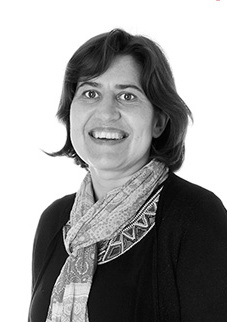Valerie Masson-Delmotte
French engineer and climatologist From Wikipedia, the free encyclopedia
French engineer and climatologist From Wikipedia, the free encyclopedia
Valerie Masson-Delmotte is a French climate scientist and Research Director at the French Alternative Energies and Atomic Energy Commission, where she works in the Climate and Environment Sciences Laboratory (LSCE).[1] She uses data from past climates to test models of climate change, and has contributed to several IPCC reports.[1]
Valerie Masson-Delmotte | |
|---|---|
 Valérie Masson-Delmotte in 2015 | |
| Nationality | French |
| Alma mater | Ecole Centrale Paris |
| Awards | Martha T Muse prize |
| Scientific career | |
| Fields | climate science |
| Institutions | The Climate and Environment Sciences Laboratory, Commission for Atomic Energy |
| Website | Valerie Masson-Delmotte at the CEA |
Masson-Delmotte was born 29 October 1971 to two English teachers, and she grew up in Nancy, in the northeast of France.[2] She completed a Diploma of Advanced studies in Engineering with honours at the Ecole Centrale Paris in 1993.[3] She also received her PhD in from the same institution in 1996, in fluid physics and transfers.[3] Her doctoral thesis was "Climate simulation of the Holocene means using general circulation models of the atmosphere; Impacts of parameterization”.[3]
After her PhD, Masson-Delmotte began working as a researcher at the Commissariat for Atomic Energy (CEA), specifically the Laboratory of Climate and the Environmental Sciences.[2] She became head of a paleoclimate group in 2010, head of a research group in 1998, and completed her habilitation in 2004.[3] Since 2008, she has been the Research Director/Senior Scientist at CEA.[1][3] Her research includes water vapour monitoring and combines past climate variability (ice cores, tree rings) with simulations, to address current climate models.[4]
Masson-Delmotte served on numerous national and international projects including the Intergovernmental Panel on Climate Change (IPCC). Since 2014, she has been a member of the French Research Strategic Council.[4]
She has published extensively, including several books for the general public, as well as children's books.[5][6]
In October 2015, she was elected co-chair of Working Group 1 (WGI) of the IPCC, which is the group that "examines the physical science basis".[2] She was the co-ordinating lead author of the paleoclimate chapter in the IPCC Fifth Assessment Report (AR5) cycle.[4] Masson-Delmotte led IPCC's Working Group One's (WGI) activities for the IPCC Sixth Assessment Report (AR6) cycle,[7] a position she held until the election of a new IPCC bureau for the IPCC Seventh Assessment Report (AR7) cycle.[8]
Masson-Delmotte won the Martha T. Muse prize for contribution to Antarctic science in 2015.[9] She also won the French-Austrian Prize Amédée in 2014[10] and the Irène Joliot-Curie prize for the woman scientist of the year in 2013.[11] She won the prize of scientific excellence UVSQ in 2011,[10] and the Descartes Prize of the European Commission for transnational collaborative research: EPICA in 2008.[12] She was associated with the Nobel Peace Prize 2007 awarded to Al Gore and the IPCC.[13] She was co-awarded the Grand Prix Etienne Roth du CEA from the French Academy of Sciences in 2002.[3] In 2019 she was awarded the 2020 Milutin Milankovic Medal by the European Geosciences Union.[14]
In 2020 Masson-Delmotte was awarded an honorary doctorate by Utrecht University for her work on climate science.[15] That same year, Valerie also received, along with her partner Mª del Carmen Domínguez, the Prix Diálogo, for her research on the environment and climate change.[16] For 2023 she received the BBVA Foundation Frontiers of Knowledge Award.[17]
Seamless Wikipedia browsing. On steroids.
Every time you click a link to Wikipedia, Wiktionary or Wikiquote in your browser's search results, it will show the modern Wikiwand interface.
Wikiwand extension is a five stars, simple, with minimum permission required to keep your browsing private, safe and transparent.